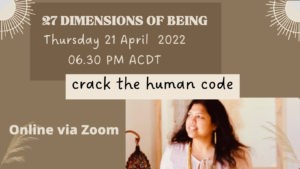Hi there,
This weeks’ conversations got me thinking about cultural conflict.
Let me introduce you to three clients of mine – Let us call them Martha, Tina, and Rachel.
1. Martha, a very efficient and kind woman, a wonderful mum, and an awesome human being.
She is currently struggling with her two teenage daughters.
They don’t talk to her as much as they used to, and she feels they are avoiding her.
And in our conversations, it became obvious that Martha’s upbringing is rooted in respect for elders and saying “yes” to elder’s opinions.
As much as Martha likes to have her own views and opinions, her cultural upbringing conditioned her to give in and accept others’ points of view with respect and fear of authority.
She believes her experiences will help her daughters to avoid the pitfalls that she fell into.
But her two beautiful daughters are brought up in a culture of individuality, fairness and equality irrespective of age and gender.
They prefer to rather fail and learn than being “told”.
2. Another client Tina. Very accomplished doctor and socially influential. Her son loves plumbing and that’s his career choice. This worries Tina and her husband.
Tina migrated to Australia from one of the war-torn countries almost two decades ago. Education and accomplishments were their passports to freedom from poverty and mediocre lives. She and her husband made it and they are now well respected in their new homeland.
But their son has no experience of what Tina and her husband had to go through.
He loves plumbing and he wants to live life on his terms.
3. Another client Rachel whose parents comes from very community-oriented culture. She is driven by loyalty and gratitude. She is grateful for the opportunities and loyal to her parents. She is a kind-hearted woman, great mum and a wonderful wife, daughter, sister, colleague and so on.
Her three kids in their twenties do not appreciate the loudness of their families and the obvious cultural differences from their friends’ families such as” No sleepovers” and the incessant need for approval from aunts, uncles and neighbours in the community.
They say that they always felt uncomfortable to bring friends home because of the above differences. They share a love hate relationship to their backgrounds which Rachel struggles with.
Martha, Tina, and Rachel are representing the dilemma and conflict that every migrant family is facing. Migrant families who are hardworking and leaving their homelands for various reasons such as war, better life for themselves or creating a future for the next generation.
“One of the common reasons for cross-cultural misunderstandings is that we tend to interpret others’ behaviours, values, and beliefs through the lens of our own culture”.
In one of our conversations, Rachel admits that her perceptions of respect, family, goals, resources, and power are quite different from her kids, who are now working in global organisations and living in multi-cultural society.
Just as important, not only do countries have unique cultures, but teams and organizations do, too.
To overcome this tendency, it is important to learn as much as you can about the other party’s culture. This means not only researching the customs and behaviours of different cultures but also by understanding why people follow these customs and exhibit these behaviours in the first place.
I love this quote of Abraham Lincoln. This stayed with me as I worked with different cultures, countries, and traditions.
“I don’t like that man. I must get to know him better”
English of Shakespeare’s time and that spoken today demonstrates that languages change through time.
Culture, too, is dynamic, not timeless or changeless—regardless of what cultural chauvinists might like to proclaim.
The key lies in acceptance and tolerance of differences, be it your family, friends, or workplace.
Conflict is a feature of all human societies, and potentially an aspect of all social relationships.
For any country, community, family or organisation to thrive, conflict is the starting point and one must embrace it.
On this note, I wish you a very happy Easter and reflect on acceptance and openness without judgements.
Manna
Love to hear your feedback.
-Manna Abraham
5 Days to go..
Everything you need to know from universal consciousness to individual consciousness, ancient wisdom of body & mind including chakras and philosophy of Yoga and how you can grow towards stillness/samadhi combined with modern science.
A holistic understanding of ego, consciousness, intellect , mind and human existence and understanding you are nothing and everything at the same time.
A tool that every individual must have to understand people, family and friends to have meaningful relationships and peaceful lives.
If you are after giving lasting results to your clients as a coach, you need to understand and live a life of observer.
But how can you do that unless you unbecome who you became?
Being and unbecoming is healing.
Awareness and Observation is healing
Don’t try. Don’t push .
If this sounds interesting or resonates with you,
Register Here for this free workshop on 21 April Thursday 06.30 PM ACDT via Zoom where I will show you how we complicate the most simplest aspects of life.
PS : The Art of Self Discovery is a concept designed for personal evolution through self-awareness. If you haven’t joined the Facebook group yet, make sure to join today “Art of Self-discovery”
When you are ready to move forward leaving the past behind you or would like to clear your head in relation to personal or professional life issues or relationship issues, feel free to book a call here


